

|
|
|
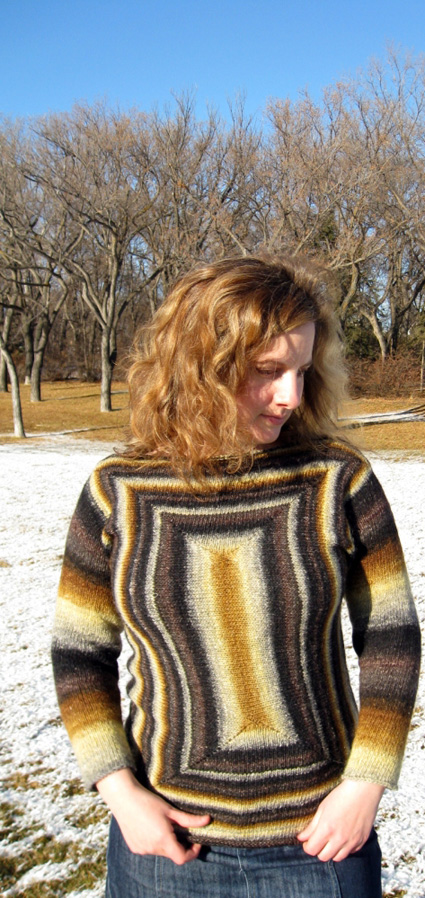 |
Who says you need to start at the top, the bottom, or even the side when you knit a sweater? I guess in food terms, this is like starting with neither the dessert or salad course, but jumping right to the entrée, leaving the other less substantial dishes to come later. But all the parts of a sweater are there when you need them. The front and back are cast on with provisional cast on, then knit out with mitered corners to the join for the sleeves. The body of the sweater is knit out for a few more rows to shape the underarms and to form the rest of the bottom and the sides. The shoulder seams are then sewn and the sleeves are knit from remaining the live stitches in one piece. Finally the centers of the squares are grafted together, which makes an invisible join and hides the method of construction, but if the grafting intimidates you, feel free to use a 3-needle bind off.
|
|
|
|
|
SIZE |
|
FINISHED MEASUREMENTS |
|
MATERIALS Notions |
|
GAUGE |
|
PATTERN NOTES |
|
This project uses a provisional cast on. Use your preferred
provisional cast on technique; directions
for one technique may be found here. Instructions for Backstitch can be found here. Instructions for Mattress Stitch can be found here. Instructions for grafting can be found here. Corner Increase |
|
DIRECTIONS 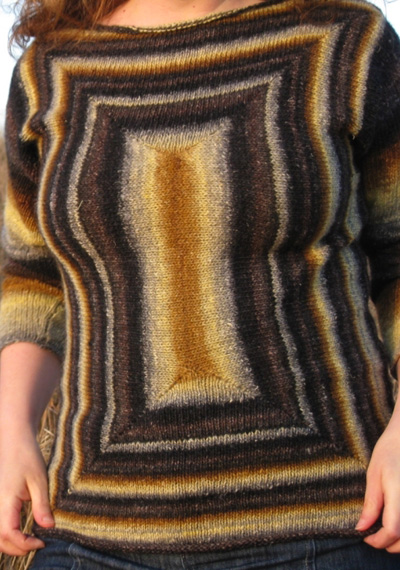
With shortest circular needle for sizes XS, S, M and L or double-point needles for sizes 1X, 2X and 3X, CO 118[112, 100, 88, 76, 68, 52] sts using provisional CO technique. Do not join. Note: When working Set-up Row, do not place unique marker; this
marker will be placed at end of Round 1. Round 1: [K to marker, work corner increase, placing marker after p st and before second increase] four times, placing unique marker before second increase of last corner increase, to indicate beginning of round. 126[120, 108, 96, 84, 76, 60] sts. Increase Round: [K to marker, work corner increase] four times. Work Increase Round three times. Sizes M, L, 3X Only: All Sizes: Shape Armholes: For size L, next row will be worked without increases. For all other sizes, work increases. Next Row [WS]: Work in pattern until you have worked two corners, p82[82, 82, 81, 81, 80, 77] (83[83, 83, 81, 82, 81, 78] sts on right needle after marker). Place last 36[39, 41, 44, 46, 49, 52] sts of this section and corner st on one st holder or length of waste yarn for sleeve, place 60[66, 74, 82, 90, 96, 104] sts of short sction on another holder for neckline, place corner st and 36[39, 41, 44, 46, 49, 52] sts of remaining long section (all sts to newly placed marker) on third holder for other sleeve. Remove new marker; front will now be worked back and forth over remaining sts. Work 8 more rows in pattern, increasing at corners on three
of every four rows as set. 256[262, 270, 272, 284, 288, 290]
sts. Shape Neckline: Right Shoulder: Left Shoulder:
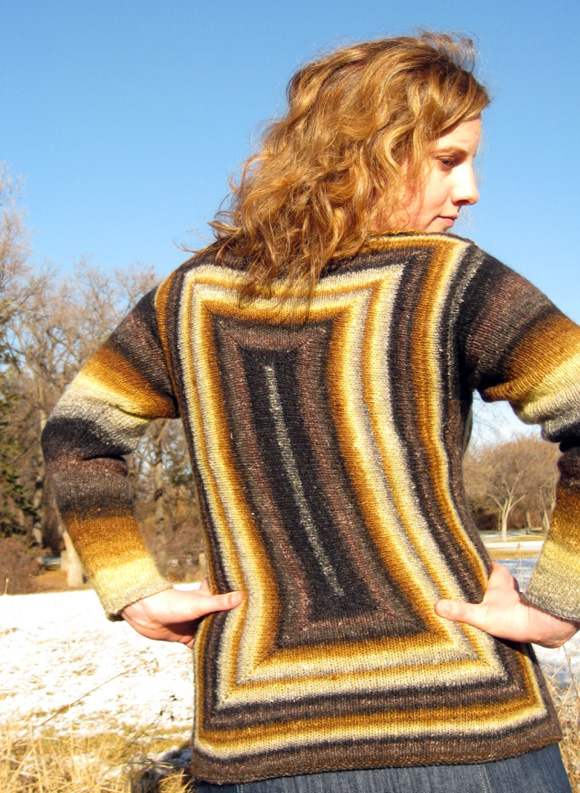
Work as for Front.
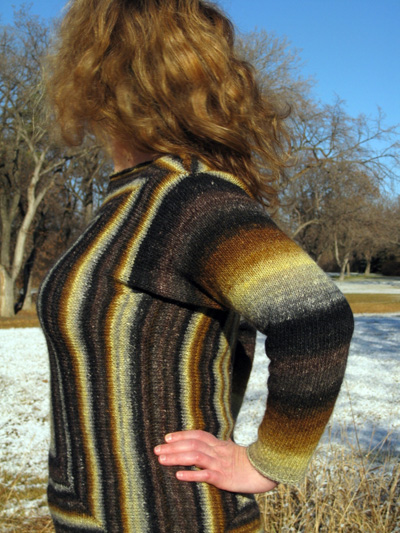 Sew shoulder seams using backstitch. Remove front and back held sts of one armhole from holders and place on needle, join yarn at underarm with RS facing. 74[80, 84, 90, 94, 100, 106] sts on needle. Work 6 rows in stockinette st, ending with a WS row. Next Row [RS]: K16[13, 18, 24, 26, 32, 35], [k2tog, k1] 14[18, 16, 14, 14, 12, 12] times, k16[13, 18, 24, 26, 32, 35]. 60[62, 68, 76, 80, 88, 94] sts. Continue in stockinette until sleeve measures 4.5[5, 3, 5, 5.5,
3.5, 2] inches, ending with a WS row. Decrease Row [RS]: K1, k2tog, k to last 3 sts, k2tog, k1. Work 2 more rows in stockinette st, then loosely BO all sts. |
|
|
FINISHING Sew the following seams using mattress stitch: |
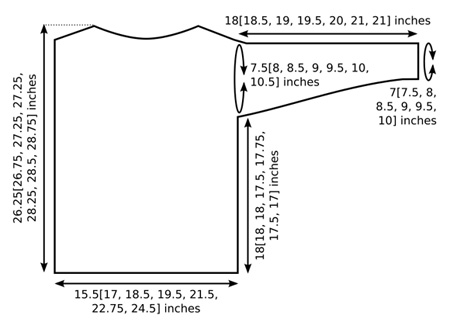
|
| ABOUT THE DESIGNER |
|
Her designs have been published in Knitting in the Sun, Knitty, and Yarn Forward, and she blogs at Parallax Knitting. |
|
Pattern & images © 2009 Sarah Sutherland. Contact Sarah |